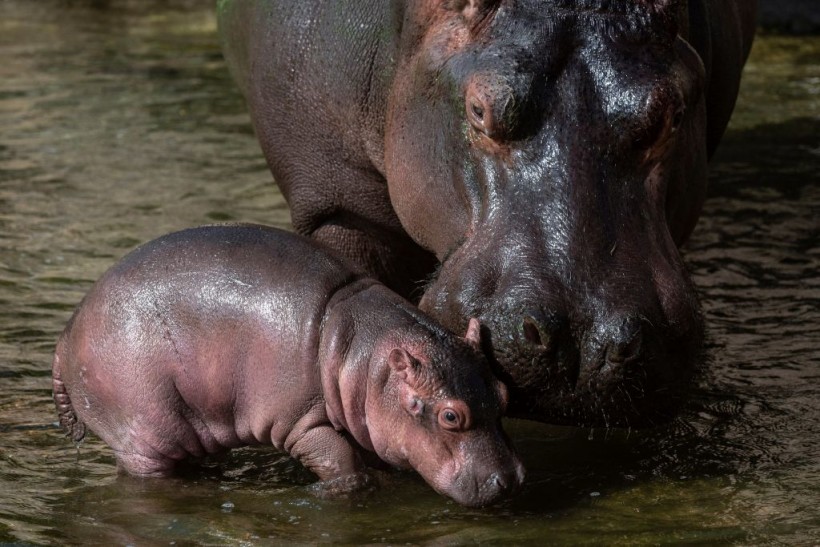Pablo Escobar's 'Cocaine Hippos': More Than 100 of Drug Kingpin's Exotic Pets Face Uncertain Future in Colombia

As the government added drug lord Pablo Escobar's so-called "cocaine" hippos to a list of "introduced, invasive species" on Friday, the only viable option for more than 100 imported exotic pets in Colombia is to kill them, experts say.
The number of hippos has increased from the few that were originally held at Escobar's Hacienda Napoles estate, with 130 now roaming free around the Magdalena River, north of Bogota.
The grazing giants, which are endemic to Sub-Saharan Africa, are said to be posing a threat to local wildlife and humans residing along the river.
The sterilization of the animals, which may weigh up to 1.8 tons, has been attempted. However, doing so is both expensive and difficult.
According to the head of the Cornare State Environmental Agency, David Echeverri, also in charge of the sterilization effort, "sacrifice (culling) remains on the table."
Echeverri, who described the hippos as "complex, expensive and dangerous," told AFP that culling is a necessary option as it could be the only way to stop the problem from getting worse.
Escobar, once head of the violent Medellin Cartel, became one of the world's wealthiest men, according to Forbes. With his fortune, Escobar bought hippos, flamingos, giraffes, zebras, and kangaroos for his ranch.
After Escobar was shot dead by police in 1993, all but the hippopotamuses were given to zoos, leaving the semi-aquatic ungulates roaming estate and continue to breed.
Colombia is now believed to be the largest so-called "bloat" of hippopotamuses outside of Africa, according to France24.
Government's Strategy to Manage Hippo Population
When faced with a vocal anti-culling campaign, the creatures have long been a source of concern for authorities.
The government declared the hippos an invasive species on Friday and announced a strategy to "manage" their population, which has been estimated to quadruple in the next ten years, according to studies.
The plan's details have not been disclosed, but former Environment Minister Manuel Rodriguez has encouraged the government to use any means to protect the creatures, even "opening a hunt."
To date, Cornare has been able to sterilize 11 hippos surgically and dart another 40 with contraceptives.
The effort has spent more than $100,000; however, it failed to stop hippo numbers from increasing.
Hippos, a Threat to Natural Wildlife
The animals, according to Rodriguez, are a big threat to fishermen and other river inhabitants.
Cornare had two hippo assaults on people last year, neither of which were fatal. Meanwhile, in Africa, hippos kill hundreds of people every year.
The manatee, a big marine mammal that dwells in the Magdalena River, and a variety of native fish are also threatened by the hippos.
Activists, with the support of Luis Domingo Gomez, a green parliamentary candidate, proposed establishing a hippo sanctuary with a mix of public and private funds earlier this year.
Experts, on the other hand, condemn the concept, claiming that it is both costly and no less harmful to the local ecosystem.
Local animals, according to biologist Nataly Castelblanco, a specialist on manatees, should take precedence. She wrote on Twitter that "native species have conservation priority over invasive species."
READ MORE: NBA MVP Race: Did Joel Embiid, Nikola Jokic, Stephen Curry Make It to Top 5 in Latest Rankings?
This article is owned by Latin Post.
Written by: Jess Smith
WATCH: Pablo Escobar's 'Cocaine Hippos' Might Finally Need to Be Killed - from Vice News
Subscribe to Latin Post!
Sign up for our free newsletter for the Latest coverage!














